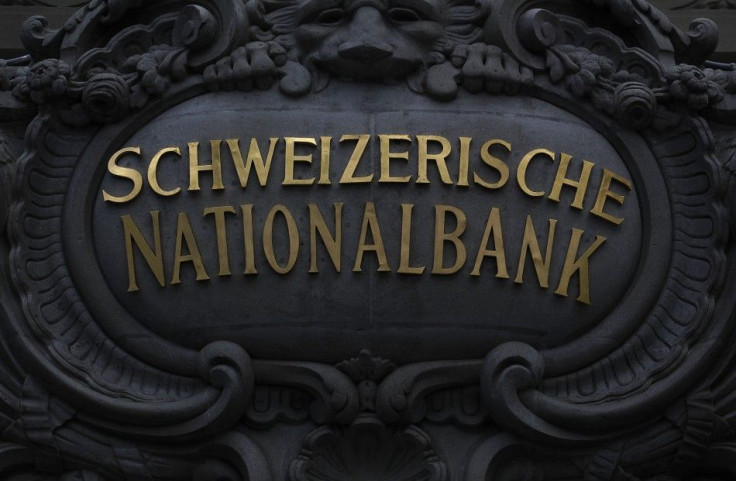Asian Stocks Fall, Swiss Franc Holds

Asian stocks fell Thursday on profit-taking by nervous investors, while the Swiss franc stayed firm after plans to curb the currency disappointed those looking for more drastic action.
Commodity and technology shares dragged the region's shares lower as investors skimmed off some of this week's gains amid lingering worries on the U.S. economy and eurozone debt.
The Swiss National Bank said it would expand its liquidity policy but stopped short of introducing a franc exchange rate peg, a topic hotly discussed in markets over the last few days as a way to cool the red-hot currency.
"What drove the Swiss stronger is less speculation and more fear of things going wrong in the euro zone. Until that's fixed, it's very difficult to see how the SNB can win," said Rob Ryan, FX strategist at BNP Paribas in Singapore.
The dollar traded at 0.7902 Swiss francs, having retreated from a two-week high around 0.8011, while the euro stood at 1.1372 francs, down from Wednesday's peak around 1.1554.
Still, markets are a lot calmer compared with last week, when a crisis of confidence swept through global financial markets after Standard & Poor's cut the United States triple-A credit rating, pushing investors into safe-havens such as gold and the Swiss franc.
GARDEN VARIETY UNCERTAINTY
"The mood has improved over the past week from sheer panic to a more garden-variety uncertainty about the future," said Bricklin Dwyer, economist at BNP Paribas.
With market sentiment still fragile, traders said data due later in the day, including U.S. consumer prices, existing home sales and regional manufacturing data will be closely watched.
Japan's Nikkei stock average slipped 0.42 percent, while stocks elsewhere in Asia as measured by MSCI fell over 1 percent.
Underscoring the cautious mood in Asia, S&P stock futures lost 0.63 percent.
Taiwan's tech-heavy index lost almost 2 percent, making it the biggest loser in the region's major markets, tracking a fall in U.S. tech shares on Wednesday after Dell's disappointing sales outlook heightened worries about the economic growth outlook.
Australian brewer Foster's won 1 percent after the company rejected a $10 billion offer from rival SABMiller for a second time.
Meanwhile, gold traded at $1,789 an ounce, holding not far from a record high around $1,813.79 set last week. U.S. crude was a touch softer at $87.22 a barrel.
The dollar continued its gradual decline against the yen, slipping to 76.60 yen, well off a high above 80.00 set earlier this month after Japanese authorities intervened to weaken the yen.
Japanese Finance Minister Yoshihiko Noda said on Thursday he will closely watch market moves, when asked by reporters about the yen's strengthening against the dollar overnight.
"The Bank of Japan is caught between a rock and a hard place," said Jessica Hoversen, FX analyst at MF Global in New York. "Intervention did not work earlier this month, but investors also do not want to be caught on the wrong side."
© Copyright Thomson Reuters 2024. All rights reserved.





















